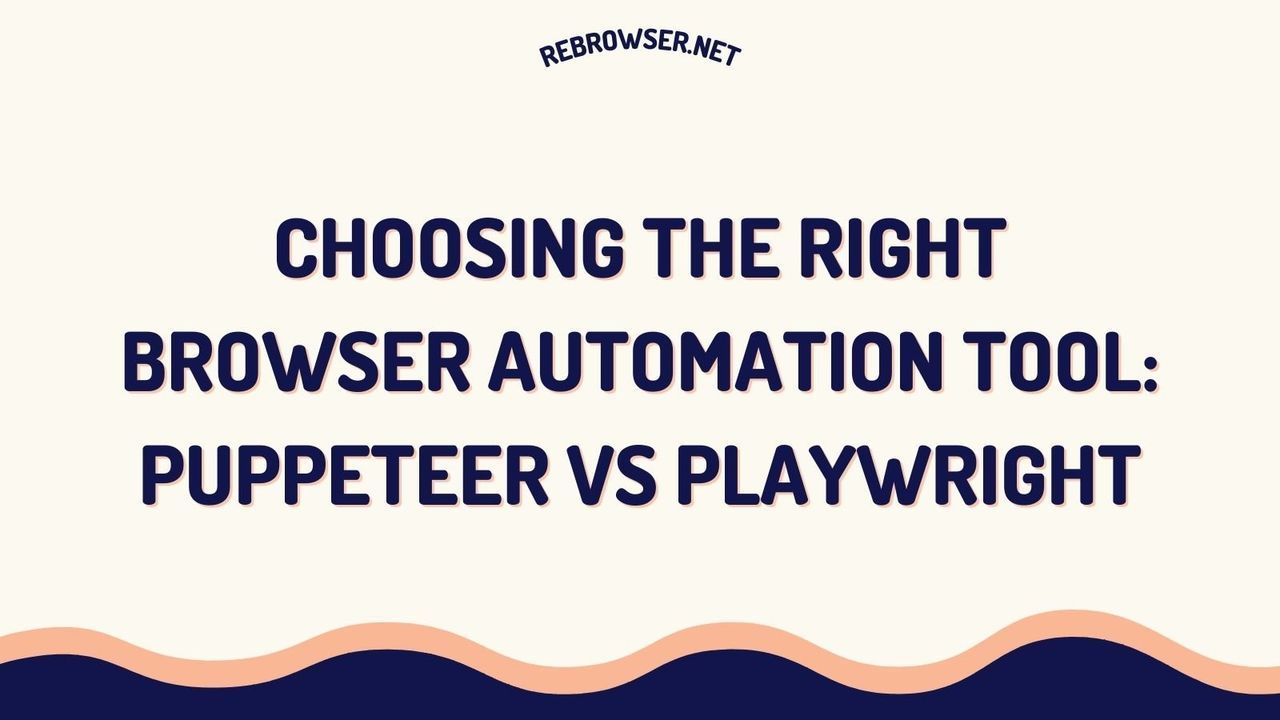Farmed Accounts Unveiled: A Comprehensive Guide to Their Effectiveness and Alternatives
In today's digital landscape, managing multiple online profiles has become a necessity for many businesses and individuals. Enter the world of farmed accounts - a controversial yet popular solution for those seeking to scale their online presence. But what exactly are these accounts, and do they truly deliver on their promises? Let's dive deep into the realm of farmed accounts, exploring their mechanics, effectiveness, and potential alternatives.

TLDR: Key Takeaways
- Farmed accounts are pre-created profiles sold for various online platforms, offering a quick solution for multi-account management but carrying significant risks.
- While farmed accounts can provide immediate access to multiple profiles, their questionable origins and potential for detection make them a risky choice for long-term business strategies.
- Alternatives such as account managers and proxy servers offer more secure and sustainable solutions for managing multiple online profiles while maintaining authenticity and reducing ban risks.
Introduction to Farmed Accounts
Farmed accounts have emerged as a quick-fix solution for individuals and businesses looking to establish a multi-faceted online presence. These are pre-created profiles on various platforms, ranging from social media networks to e-commerce sites, that are cultivated specifically for resale. The allure of these accounts lies in their promise of instant scalability and the potential to bypass the often tedious process of manually creating and nurturing multiple online identities.
However, the world of farmed accounts is not without its complexities and controversies. As we peel back the layers, we'll uncover the intricate web of creation, distribution, and utilization of these accounts, as well as the potential pitfalls that lurk beneath their seemingly convenient facade.
The Rise of Account Farming
The phenomenon of account farming has gained traction in recent years, driven by several factors:
- Increased demand for multiple online identities in digital marketing
- The need for instant credibility in online marketplaces
- Challenges posed by platform restrictions on account creation
- The time-consuming nature of manually developing online profiles
These factors have contributed to the growth of a shadowy industry dedicated to the mass production and sale of online accounts. But as we'll explore, this industry operates in a gray area, raising questions about legitimacy, ethics, and long-term viability.
The Mechanics of Account Farming
Understanding how farmed accounts are created is crucial to grasping their potential benefits and risks. Account farming is not a simple matter of automated mass registration; it involves a complex process designed to mimic the organic growth of genuine user profiles.
The Creation Process
Account farmers employ various techniques to generate profiles that appear authentic:
- Profile Generation: Using sophisticated software to create unique user information, including names, birthdates, and locations.
- IP Diversification: Utilizing a network of proxy servers to simulate account creation from diverse geographic locations.
- Content Population: Automating the process of adding posts, friends, and interactions to build a believable user history.
- Age Simulation: Some farmers "age" accounts by creating them and leaving them dormant for extended periods before selling.
This process aims to create accounts that can withstand scrutiny from both platform algorithms and human moderators. However, the quality and authenticity of farmed accounts can vary widely depending on the methods and resources employed by the farmers.
Types of Farmed Accounts
Farmed accounts come in various forms, each serving different purposes and carrying distinct risks:
| Account Type | Description | Common Uses | Risk Level |
|---|---|---|---|
| Fresh Accounts | Newly created with minimal history | Bulk marketing, testing | High |
| Aged Accounts | Older accounts with established history | E-commerce, influencer marketing | Medium |
| Niche Accounts | Profiles tailored to specific interests or demographics | Targeted marketing, community building | Medium to Low |
| High-Quality Accounts | Extensively developed profiles with robust histories | Long-term business operations, premium services | Low |
The diversity in account types reflects the varied needs of buyers, from those seeking disposable profiles for short-term campaigns to others requiring established accounts for long-term business strategies.
Pros and Cons of Using Farmed Accounts
Like any tool in the digital marketer's arsenal, farmed accounts come with their own set of advantages and drawbacks. Understanding these can help businesses make informed decisions about whether to incorporate farmed accounts into their strategies.
Potential Benefits
- Rapid Scaling: Farmed accounts allow businesses to quickly establish a multi-account presence across platforms.
- Time Savings: Bypassing the account creation and nurturing process can save significant time and resources.
- Immediate Credibility: Aged accounts may provide instant credibility in certain online communities.
- Platform Restrictions Bypass: In some cases, farmed accounts can help circumvent platform limitations on account creation.
Significant Risks
- Account Bans: Platforms are increasingly adept at detecting and banning farmed accounts, potentially leading to loss of investment and business disruption.
- Reputational Damage: Discovery of the use of farmed accounts can severely damage a brand's reputation and trustworthiness.
- Legal Issues: Depending on jurisdiction and usage, employing farmed accounts may violate platform terms of service or even local laws.
- Inconsistent Quality: The authenticity and robustness of farmed accounts can vary greatly, leading to unpredictable performance.
Given these considerations, it's crucial for businesses to weigh the short-term gains against the potential long-term risks when considering the use of farmed accounts.
Alternatives to Farmed Accounts
For businesses seeking to manage multiple online profiles without the risks associated with farmed accounts, several alternatives offer more sustainable and legitimate solutions.
Account Managers and Virtual Browser Profiles
Specialized software like account managers provide a safer alternative to farmed accounts. These tools allow users to create and manage multiple online profiles while maintaining distinct digital fingerprints for each. Key benefits include:
- Creation of unique browser profiles for each account
- Automated cookie and cache management to maintain account individuality
- Integration with proxy servers for IP diversification
- Compliance with platform terms of service
By using account managers, businesses can achieve many of the benefits of farmed accounts while significantly reducing the risk of detection and bans.
Proxy Servers: A Crucial Component
Proxy servers play a vital role in managing multiple online profiles securely. They allow users to access the internet from different IP addresses, simulating diverse geographic locations. This is crucial for maintaining the authenticity of multiple accounts and reducing the risk of detection.
For optimal results, it's essential to use high-quality proxies. Different types of proxies offer varying levels of anonymity and performance:
- Mobile Proxies: Ideal for simulating mobile device access, crucial for platforms with mobile-centric user bases.
- Residential Proxies: Provide IP addresses from real residential internet service providers, offering high legitimacy.
- Datacenter Proxies: Offer high speeds but may be more easily detected by sophisticated platforms.
Choosing the right type of proxy server is crucial for maintaining the integrity and performance of your multi-account strategy.
Organic Growth Strategies
While more time-consuming, organic growth strategies remain the most reliable and risk-free approach to building a multi-account presence:
- Manual Account Creation: Personally create and nurture accounts over time.
- Content Strategy: Develop unique, valuable content for each account to build genuine engagement.
- Community Engagement: Actively participate in relevant online communities to build credibility organically.
- Influencer Partnerships: Collaborate with established influencers to gain exposure and credibility.
These strategies, while requiring more time and effort, result in authentic, high-quality accounts that are far less likely to face scrutiny or bans from platforms.
Legal and Ethical Considerations
The use of farmed accounts raises significant legal and ethical questions that businesses must carefully consider. Understanding these issues is crucial for making informed decisions about account management strategies.
Terms of Service Violations
Most online platforms explicitly prohibit the use of purchased or inauthentic accounts in their terms of service. Violating these terms can lead to severe consequences:
- Account suspensions or permanent bans
- Loss of accumulated followers, content, and business data
- Potential legal action by the platform against repeat offenders
It's crucial to thoroughly review and understand the terms of service for each platform you operate on to ensure compliance and avoid potential penalties.
Ethical Implications
Beyond legal considerations, the use of farmed accounts raises ethical concerns that can impact a brand's reputation and trustworthiness:
- Authenticity: Using farmed accounts can be seen as a form of deception, potentially eroding trust with customers and partners.
- Fair Competition: Artificially inflating online presence through farmed accounts may provide an unfair advantage over competitors who grow their presence organically.
- Data Privacy: The creation and sale of farmed accounts often involve the use of real people's data without their consent, raising privacy concerns.
- Platform Integrity: Widespread use of farmed accounts can undermine the integrity and user experience of online platforms.
Businesses must weigh these ethical considerations against the potential short-term benefits of using farmed accounts, keeping in mind the long-term impact on brand reputation and customer trust.

Best Practices for Account Management
Whether you choose to use farmed accounts or pursue alternative strategies, implementing best practices for account management is crucial for maintaining a robust and legitimate online presence.
Security and Authentication
Protecting your accounts from unauthorized access and potential takeovers is paramount:
- Use strong, unique passwords for each account
- Implement two-factor authentication wherever possible
- Regularly monitor account activity for signs of suspicious behavior
- Use secure, encrypted methods for storing account credentials
Content Strategy and Engagement
Developing a robust content strategy helps maintain the authenticity and value of your accounts:
- Unique Content: Create original content tailored to each account's specific audience and purpose.
- Consistent Posting: Maintain a regular posting schedule to keep accounts active and engaged.
- Community Interaction: Actively respond to comments and participate in relevant discussions to build genuine connections.
- Cross-Platform Consistency: Ensure brand messaging and voice remain consistent across all accounts and platforms.
Compliance and Monitoring
Staying compliant with platform policies and industry regulations is crucial for long-term success:
- Regularly review and adhere to platform terms of service
- Stay informed about changes in platform policies and adjust strategies accordingly
- Implement a system for monitoring account health and performance metrics
- Be prepared to quickly address any compliance issues or account flags
By following these best practices, businesses can maintain a healthy, authentic, and effective multi-account presence, regardless of the specific strategies employed.
Conclusion: Navigating the Complex World of Online Accounts
The world of farmed accounts presents a complex landscape of opportunities and risks for businesses seeking to expand their online presence. While these accounts offer the allure of rapid scaling and instant credibility, they come with significant drawbacks, including potential bans, reputational damage, and ethical concerns.
As we've explored, alternatives such as account managers, proxy servers, cloud browsers, and organic growth strategies provide more sustainable and legitimate paths to managing multiple online profiles. These methods, while potentially more time-consuming, offer greater security, authenticity, and long-term viability.
Ultimately, the decision to use farmed accounts or pursue alternative strategies depends on a careful assessment of your business goals, risk tolerance, and ethical standards. Whichever path you choose, implementing robust account management practices and staying informed about platform policies and industry trends will be crucial to your success in the digital realm.
Remember, in the ever-evolving digital landscape, maintaining authenticity and building genuine connections with your audience will always be the most reliable strategy for long-term success. By prioritizing these principles and leveraging the right tools and strategies, businesses can build a strong, resilient online presence that stands the test of time.
Frequently Asked Questions
Are farmed accounts legal to use?
The legality of farmed accounts is a gray area. While not explicitly illegal in most jurisdictions, their use often violates platform terms of service. Businesses should carefully consider the legal risks and potential consequences before using farmed accounts.
What are the main risks of using farmed accounts?
The main risks include account bans, reputational damage, and potential legal issues. Platforms are increasingly adept at detecting and shutting down farmed accounts, which can lead to loss of investment and disruption of business operations.
How can I safely manage multiple online profiles without using farmed accounts?
Use account managers and virtual browser profiles to create and manage multiple accounts legitimately. Combine these tools with high-quality proxy servers to diversify IP addresses. Implement organic growth strategies to build authentic, valuable online presences.
What type of proxy server is best for managing multiple accounts?
Residential proxies are often considered the best for managing multiple accounts due to their high legitimacy. They provide IP addresses from real residential internet service providers, making them less likely to be detected or flagged by platforms.
How can I ensure my multiple accounts remain compliant with platform policies?
Regularly review and adhere to each platform's terms of service. Create unique, valuable content for each account and engage authentically with the community. Implement strong security measures and monitor account activity closely for any signs of suspicious behavior.





